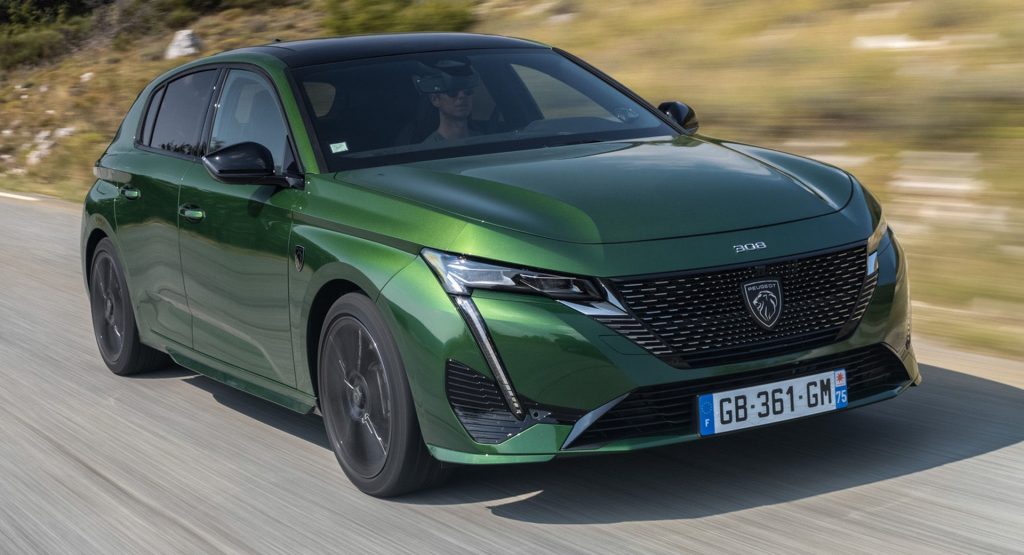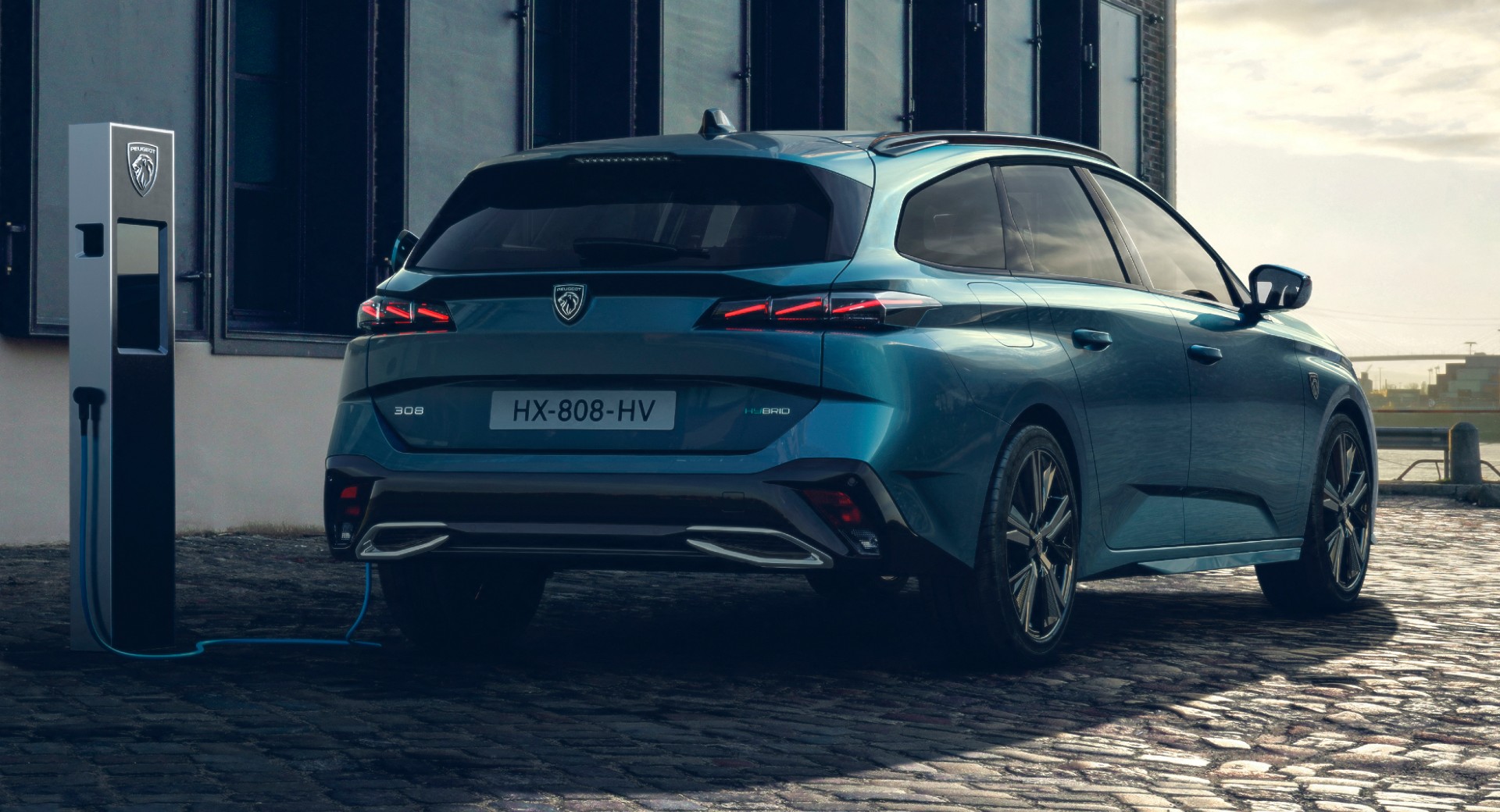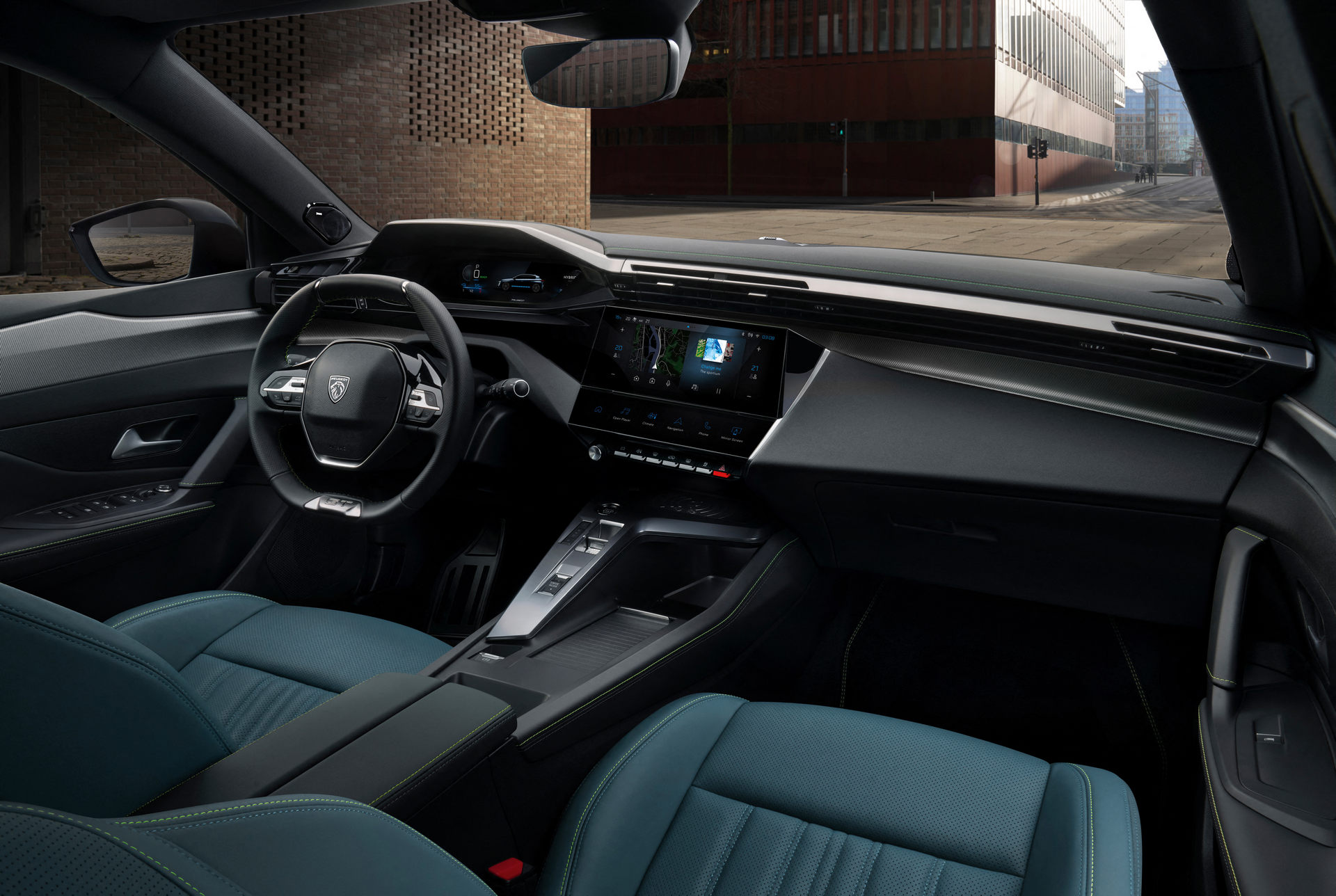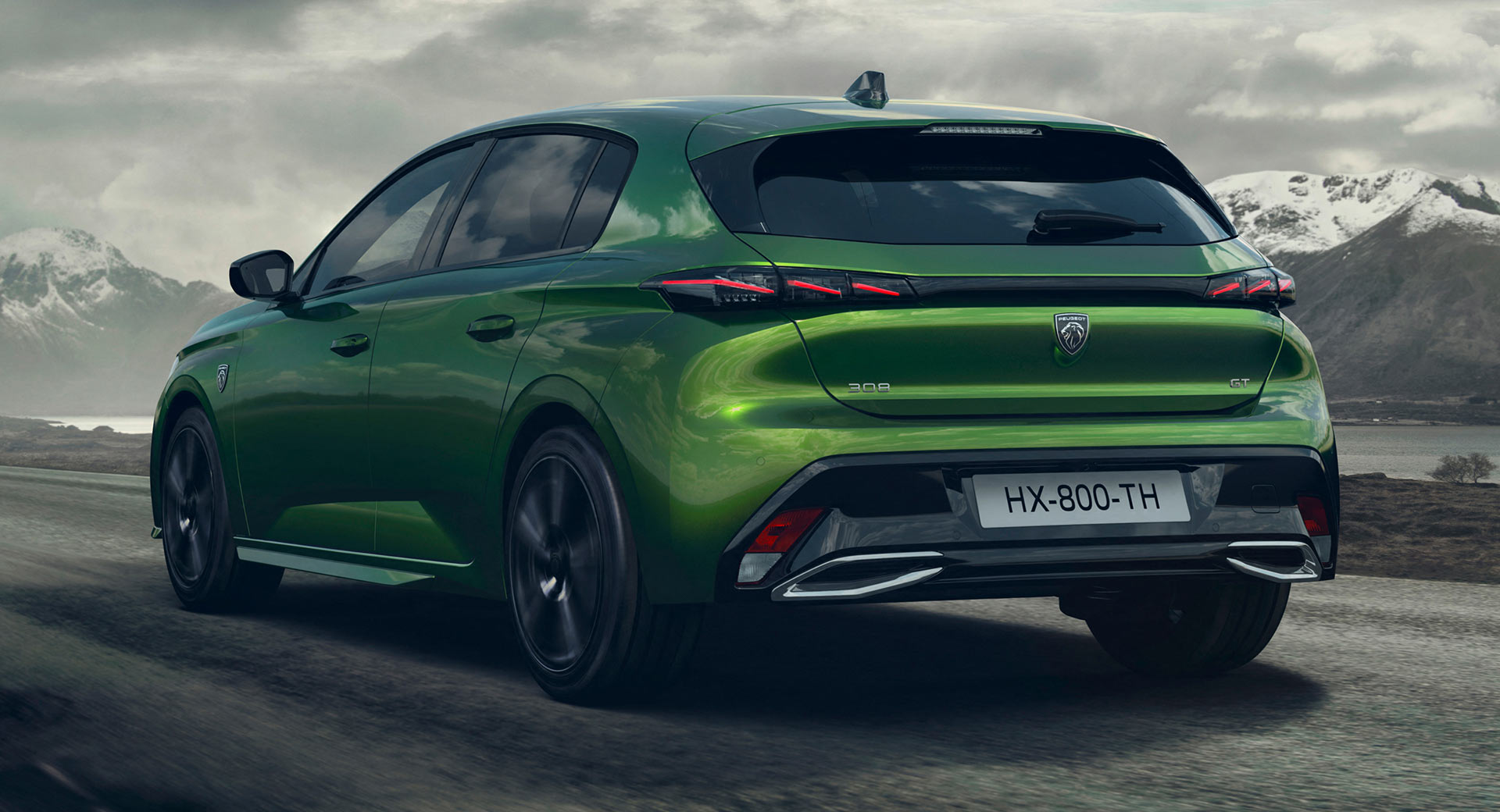Peugeot is ready to expand the 308 lineup with a fully electric model that will sit next to the existing ICE-powered and PHEV variants. The e-308 will likely be available in both hatchback and SW form and will be based on an electrified version of the EMP2 architecture. Plans for an EV variant of the compact hatchback were revealed last year from Peugeot’s product chief, Jerome Micheron, but today we have more information about the upcoming model.
Initially, it was believed that the EMP2 platform underpinning the Peugeot 308, the DS 4, and the Opel Astra alongside plenty of other models would only come in ICE and PHEV form. However, starting from its passenger vans that are using a stretched version of the same architecture, Stellantis fitted a larger battery and electric motors transforming them into EVs.
See Also: New Peugeot 308 SW Is A Sexy And Practical Alternative to Compact SUVs
Design changes inside and out will likely be minimal, following the example of the 208 supermini and the 2008 B-SUV that are already available in fully electric form. Peugeot says that the e-308 will offer more range and increased power output compared to the smaller e-208 thanks to a more efficient powertrain. A single front-mounted electric motor will reportedly produce 154 hp (115 kW / 156 PS) and 270 Nm (199 lb-ft) of torque, sending power to the front axle.
The energy will be stored in a 400V underfloor battery with a capacity of 50 kWh (54 kWh gross) and 100kW fast charging capability. The new NMC811 battery chemistry technology will allow for an efficiency of 12.4kWh/100km. According to project manager Agnès Tesson-Faget this will be the best among the competition. As reported by Autocar, the e-308 will have a range of 250 miles (402 km), which is on par with the rumored range of the upcoming compact Tesla.
Read Also: 2023 Peugeot 4008 Coupe-SUV Could Capitalize On The Success Of The 3008
Despite the larger and supposedly heavier battery, the lack of an ICE motor will result in a weight of around 1,600 kg (3,527 pounds), which is similar to the plug-in hybrid variant. Boot space is expected to be 361 lt (12.7 cubic feet) in the hatchback, just like in the PHEV variant, and smaller than the 412 lt (14.5 cubic feet) of the ICE-powered model.
The e-308 will be sharing its underpinnings with the fully electric Opel Astra-e sibling that has been confirmed for a 2023 debut. Autocar reports that production for the electric Peugeot is expected to start in July 2023, with the first deliveries following shortly after that. The French model will compete with the likes of the VW ID.3 and Nissan Leaf, Renault Megane E-Tech, alongside the upcoming Tesla C-Segment hatchback.
The company expects the e-308 to account for a fair share of the 308 sales, with Peugeot CEO Linda Jackson saying that electric versions are already making up to 20 percent of the brand’s overall sales, praising the French automaker’s multi-powertrain strategy as a commercial success.







